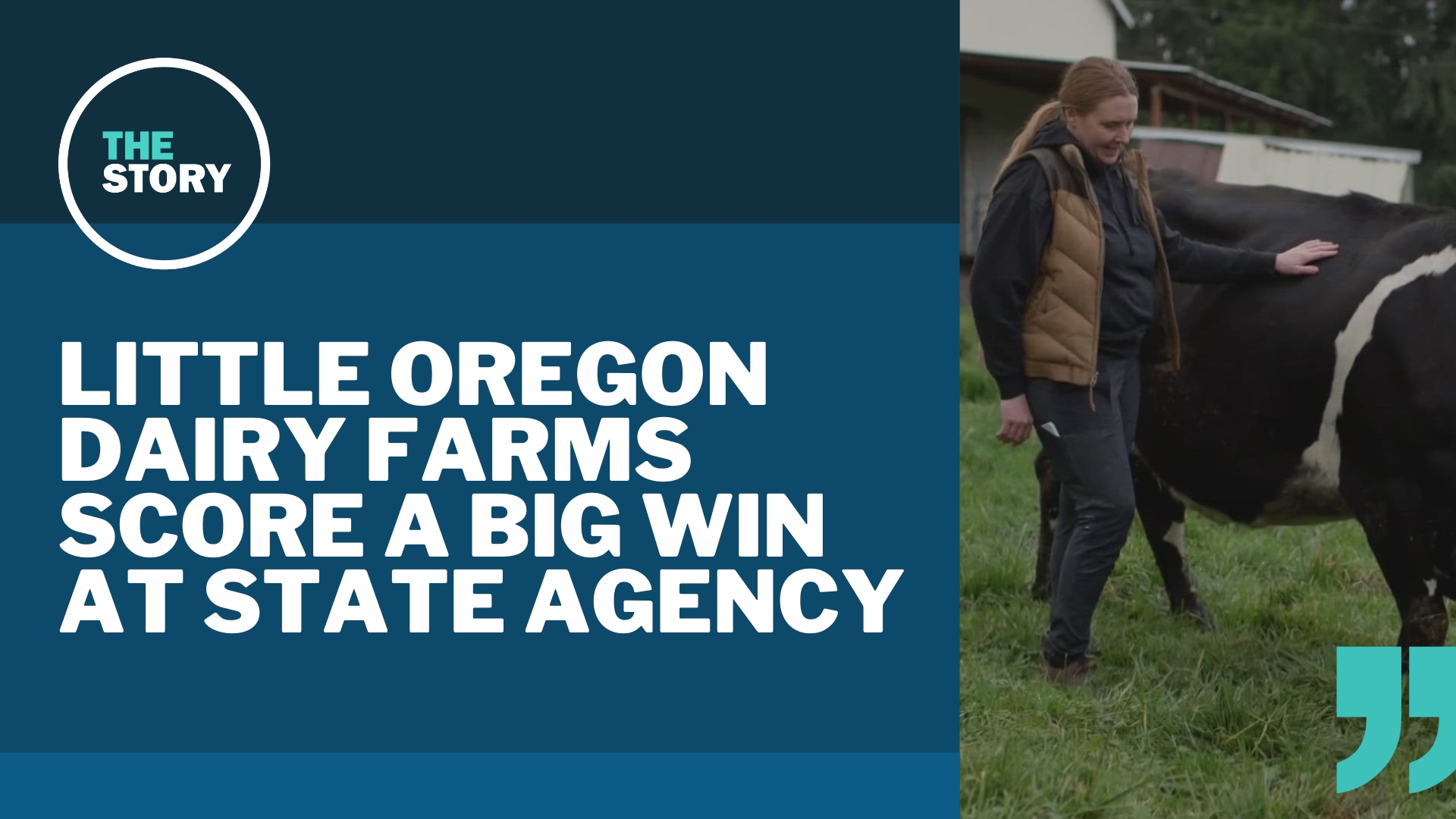YAMHILL COUNTY, Ore. — Small dairies no longer have to follow the same rules around waste as large operations, eliminating the need to install expensive waste treatment systems, the Oregon Department of Agriculture recently determined.
Small dairy farmers like Sarah King rejoiced at the news. The Story previously spoke with King, who is the owner of Godspeed Hollow. She sells raw milk directly to members who pay to own a share of her "herd," which consists of four cows on 11 acres in Yamhill County. Those cows mostly roam around outside and leave their waste on the ground, where it becomes fertilizer for the soil.
Those proposed requirements by the ODA, she said, would have put her on the hook to pay for permits, install drain lines and holding tanks, and frequently journal how she was handling the animal waste.
"It could have been anywhere between $15,000 all the way easily up to $100,000 or more, depending on the level of infrastructure that they're going to require from us," King said in June. "So, it's not insignificant. I mean, and I don't care who you are, $15,000 is a lot of money ... And if I think about even a small household that's not selling any raw milk, they're just milking their backyard goat for their own family, that's a really unreasonable ask for them."
So King and other small dairy operators with cows or goats sued in federal court, with the help of the Institute for Justice, arguing that the new rules were not constitutional in part because they were actually requested by large operations with hundreds to thousands of cows in the Oregon dairy industry.
The case then became at the center of a misinformation maelstrom, sparked by a YouTube content creator, but that's another story.
Last week, the ODA put out new rules on dairy operations. The key portion states that a confined animal feeding operation, or CAFO, is an operation that engages in the feeding or holding of animals in buildings, pens or lots not sustaining vegetative growth in the normal growing season for 12 hours or more per day for more than 120 days in a 12-month period.
King and the many other small operators do not qualify under that, so they do not have to create those expensive waste treatment systems.
"I am both thrilled and determined. Really, I think the thing I'm most thrilled about is that we were able to influence and really help shape the focus of the policy work that has come out," King said. "That was really the intention in the first place, which was environmental protection, and we were able to help connect the dots when it came to what is the intention versus the factual application of the things that were being considered in the moment, and get clear about what does that mean for farms of our size — small-scale farms in this case — and how can we, who are already doing our best work to take environmental protection measures, continue to do the thing that is our number one goal, which is manage our land animals in a healthy and environmentally considerate way and serve our communities in the way that they need. So, very excited about that."
Her lawyer at the Institute for Justice, Ari Bargil, said it's the right outcome for small farms in Oregon.
"One of the things that we were always trying to accomplish with this lawsuit is to make sure that small farms can stay small farms and that the small farming way of life is something that stays legal and is promoted both in Oregon and nationwide," Bargil explained. "What the state did essentially threatened the existence of small farmers — not just my clients, but all small farmers throughout the state of Oregon.
"I'm glad that they rethought their rules. It's a shame it took a constitutional lawsuit for them to do it, but at the end of the day, I think what's most important here is that small farmers get to continue to be small farmers, and we're happy that we got the result that we did."

